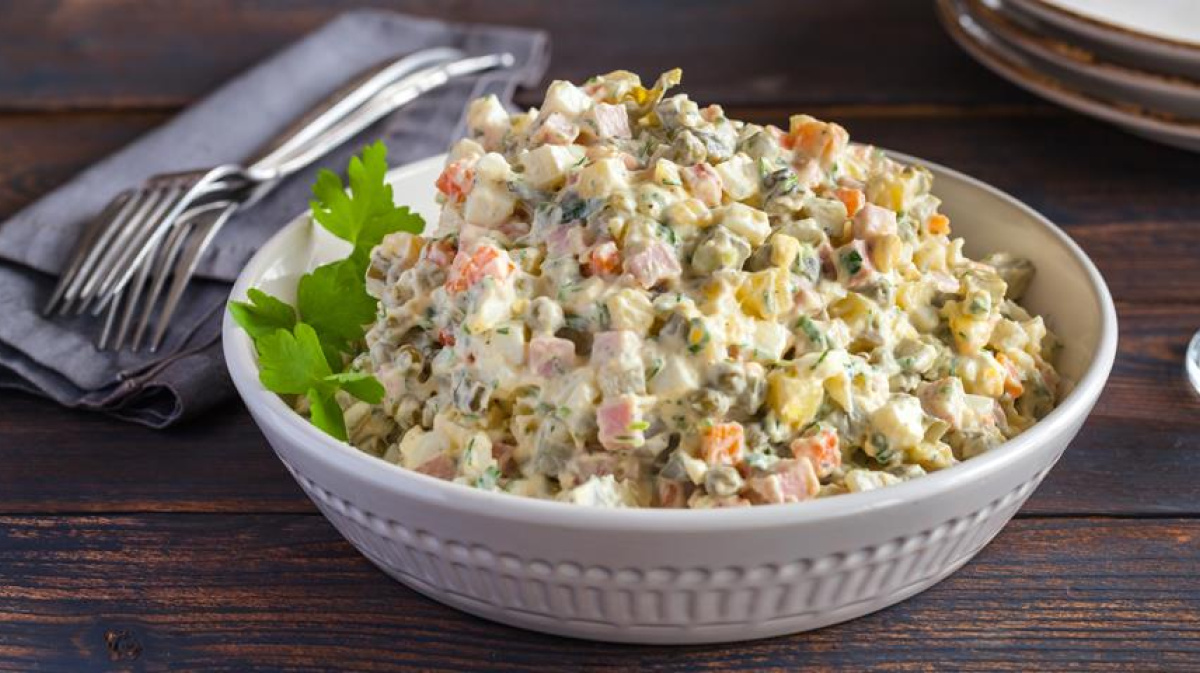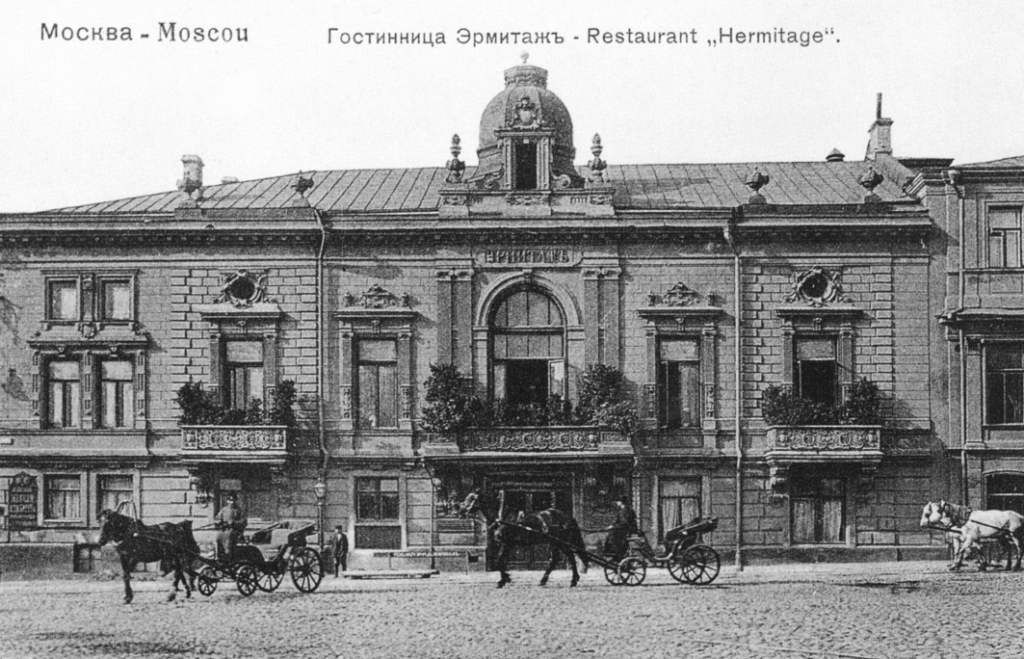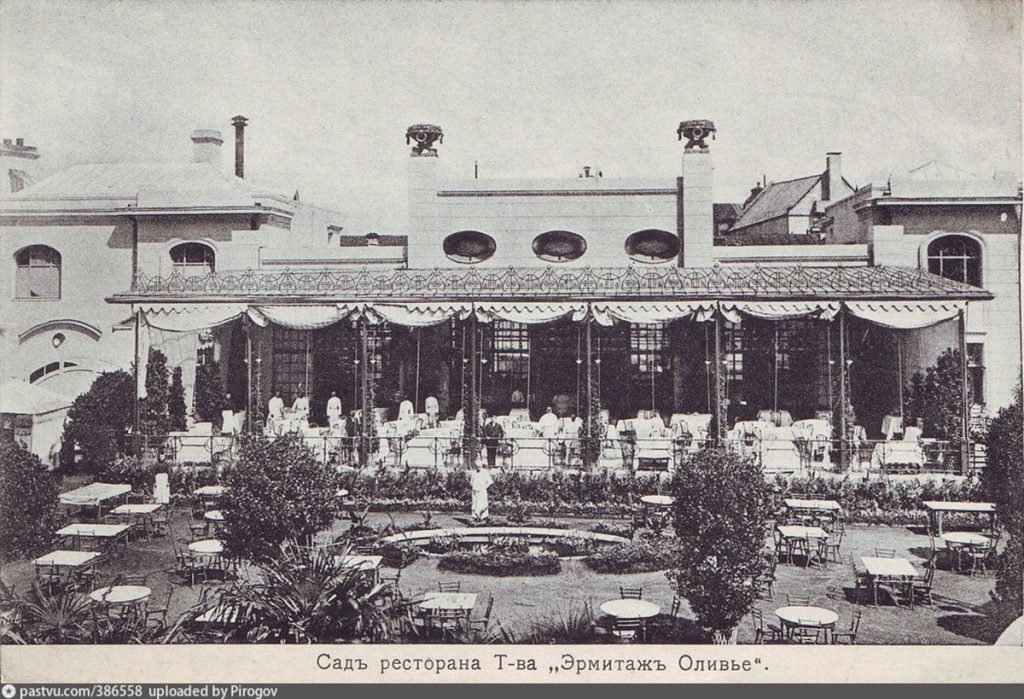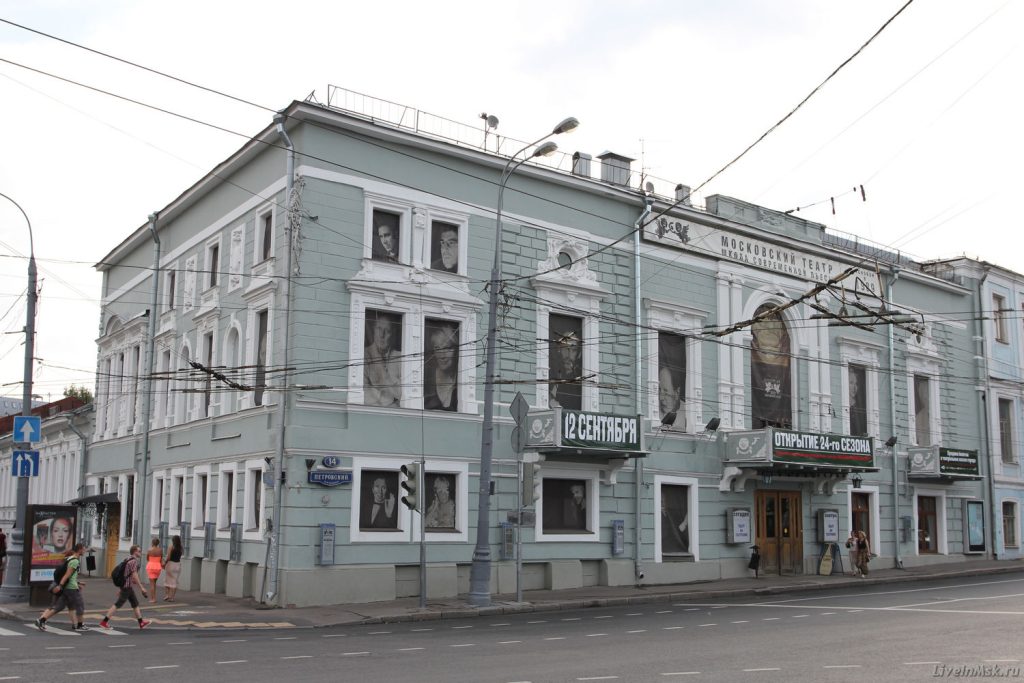Hermitage Restaurant: Moscow’s Birthplace of Olivier Salad

As a child of the Soviet era, this time of year always reminds me of Olivier salad — that festive New Year’s dish that connects generations. It’s the same salad my grandmothers prepared in Kiev, my mother made both in the Soviet Union and after emigrating to the United States, and that my family and I served to delighted guests at our restaurant Bear in New York City. This culinary tradition, so deeply rooted in cultural memory, led me to reflect on the place where the dish was born: the Hermitage, one of Moscow’s most storied restaurants.

The Hermitage opened its doors in the 1860s and soon became a legend of pre-revolutionary Moscow. Its origins are traced back to an unlikely partnership between a celebrated chef, Lucien Olivier, and a Moscow merchant, Yakov Pegov. According to popular lore, the two bonded over a shared passion for snuff tobacco, which sparked the idea of creating an upscale “traktir.” Although technically a tavern, their establishment was closer to a Parisian-style restaurant, blending French culinary finesse with a distinctly Russian sense of warmth and hospitality.
In an era when social status was closely tied to dining experiences, the Hermitage offered something unique. The waiters, known as polovye, wore not tailcoats but white shirts of fine Dutch linen, cinched with silk sashes. This subtle touch of tradition, paired with the elegance of a European culinary sensibility, made the Hermitage a favored destination for Moscow’s intelligentsia, aristocrats, artists, and writers. Within its walls, the boundaries of class and culture seemed to soften, if only for an evening.
It was here, amid the lively conversations and clinking glasses, that Olivier salad was born. Originally known as “Mayonnaise of Game,” the dish was nothing like the hearty, comforting version we enjoy today. It featured fillets of hazel grouse and partridge, cubes of aspic, crayfish tails, tongue, potatoes, pickles, and a delicate sauce Provençale. One night, diners casually mixed these elements together on their plates rather than tasting each component separately. Though this initially offended Olivier, he soon discovered that the improvised blend of flavors worked beautifully. The next day, he presented the salad already mixed, and it was an immediate triumph.
Over time, the recipe evolved into the familiar version we love today — a New Year’s staple across Russia and far beyond.

Yet the Hermitage’s significance stretches well beyond Olivier’s culinary creation. This restaurant was a cultural hub, hosting countless moments that would shape Russian intellectual and artistic life.
Ivan Turgenev was honored here in 1879, and in the 1870s and 1880s, so-called “Taneev Dinners” brought together forward-thinking jurists and sociologists to debate the issues of the day. Pyotr Ilyich Tchaikovsky marked his ill-fated marriage to Antonina Milyukova under its ornate ceilings, and in 1902, Maxim Gorky gathered friends for a banquet following the premiere of his landmark play The Lower Depths.
On Tatyana’s Day — a holiday dear to students — the Hermitage transformed into a place of boisterous camaraderie where vodka, laughter, and raucous toasts flowed freely. Professors and students mingled as equals, police were ordered to look the other way, and the restaurant reverberated with cries of “Down with autocracy!” It was a microcosm of Russian society in transition: refined yet rebellious, grandiose yet grounded in the hopes of a more open future.
The Hermitage’s glory began to fade after Lucien Olivier’s death in 1883. Although it continued under the “Hermitage Olivier Trading Partnership,” the restaurant could not withstand the upheaval of the 1917 Revolution. Over the tumultuous decades that followed, the building housed an American aid mission, served as a workers’ hostel, operated as a cinema and a publishing house, and ultimately became home to the “School of Modern Drama” theater.

A fire in 2013 threatened to erase this piece of Moscow’s history, but restorations saved the structure, ensuring it remains a protected cultural monument. Although its original grandeur is gone — the lavish décors, sweeping staircases, and opulent dining halls lost to time — the spirit endures. Today, the building stands quietly, a witness to the city’s layered past, a reminder of the voices and visions that once filled its rooms.
Today no New Years table would be complete without a big sparkling bowl of Olivier. With friends and family gathered around, as the clock strikes 12 we all toast to the future filled with hope and promise. Let’s also raise a toast to Lucian and Yakov, and to all those that made olivier possible to us.
Happy Holidays!